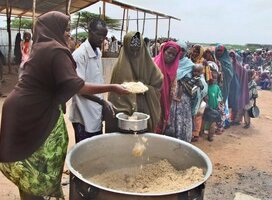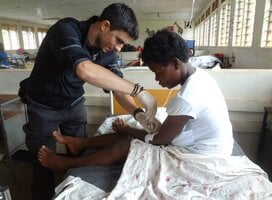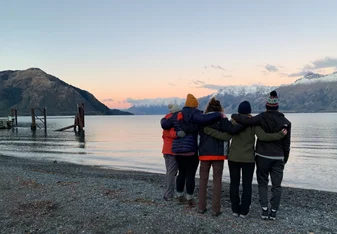Volunteer in Mali
There is much to explore in Mali, including its sweeping desert landscapes, unique abode architecture, and vibrant music scene. Trekking through villages that haven’t changed for centuries or taking a safari to spot leopards, lions, elephants, buffalo, and hippos are also activities that can be undertaken in this fascinating country.
Although culturally rich, 19% of the population in Mali live in poverty. Due to this, there are plenty of volunteering opportunities available, particularly for specialists.
Healthcare
Trained health professionals are very much in demand in Mali. Volunteers are needed to travel to villages and clinics to furnish medicines, supplies and support. Although AIDS isn’t as endemic as in other African nations, the city of Bamako is home to thousands of abandoned children who suffer from the virus. Volunteers are required to provide care and raise awareness.
Farming & Agriculture
Approximately 80% of the population rely on subsistence farming or fishing in a country which is 65% desert or semi-desert. Volunteers are needed to help support cattle-rearing communities. There are various agricultural-related activities from which to choose, whether it’s building wells, irrigation or animal-care. Volunteers can help lift rural livelihoods from poverty by providing training, effective farming methods and sometimes simply a little hands-on graft.
Youth Development & Adult Education
Illiteracy is a major problem in Mali and volunteers who can provide literacy/numeracy assistance to both children and adults are sought-after. Many of those affected by illiteracy are women. Volunteering is an ideal way for professional teachers to help by using their expertise, but programs are frequently open to those without teaching experience.
If you volunteer through a third-party provider, there is usually a support system in place for volunteers and an orientation that will take place upon arrival. It is wise to register travel plans with your government’s foreign affairs department so that you can be advised of any emergency situations. Embassies are located in Bamako.
Visas
Visas are required in advance and passports have to be valid at least six months after the end of your visit, with at least one blank page available.
Money matters
Mali uses the West African CFA franc and is very much a cash-based society. Visa is the most accepted credit card, but most of the time only cash will do. It is very difficult to obtain West African CFA francs outside of West Africa. At Modibo Keita Airport in Bamako, there are several ATM’s where you can withdraw cash on arrival.













